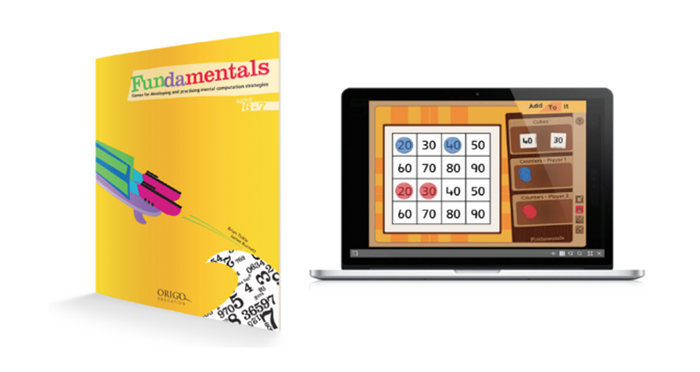Insights
Supporting Students Struggling with Foundational Math Skills
As elementary educators, we know how crucial it is for students to build strong foundational math skills. These early concepts—like math facts, number sense, and other core math foundations—serve as building blocks for everything students will encounter later in their math journey. But what happens when students start to fall behind?
For many, struggling with foundational math skills can lead to frustration, low confidence, and an ongoing cycle of difficulty in math. The good news is: with the right support, we can help turn things around.

Why Students Struggle with Math Facts and Foundational Skills
It’s common for students to have trouble with math facts and foundational skills. These concepts require more than memorization—they need to be understood in a meaningful way. When students are asked to memorize facts without a solid number sense, it can feel overwhelming and disconnected. Core math skills like basic operations, place value, and number patterns can seem abstract and confusing if students haven’t had enough hands-on or visual experiences to truly understand what they represent.
Some students may also struggle due to gaps in prior learning, limited exposure to math language, or a lack of confidence that prevents them from fully engaging. Without timely intervention, these challenges can accumulate and make it harder to grasp new concepts down the road.

How Focused Learning Time Builds Foundational Math Skills
When students are given extra time in small-group or targeted learning environments—whether during summer programs, after-school sessions, or dedicated intervention blocks—they have the chance to revisit and strengthen essential math skills in a more focused, low-pressure setting. These smaller, more flexible instructional moments allow educators to tailor support to individual student needs.
Instead of racing through grade-level content, these settings provide space to slow down and dive deeper into core concepts. Students can explore number sense, develop fluency with basic operations, and build a conceptual understanding of math relationships—skills that often get rushed or overlooked during the regular classroom pace. With intentional support, these learning opportunities can lay the foundation for long-term success in math.

Targeted Interventions to Strengthen Foundational Math Skills
When planning targeted math interventions, intentionality is key. The most effective programs focus on targeted instruction, frequent practice, and lots of student interaction. Foundational math skills—like math facts, place value, number sense, and basic operations—require more than drill; they need structured opportunities for students to explore, practice, and apply what they’ve learned in meaningful ways.
Whether you’re designing a formal summer school program or supporting learning at home or in smaller settings, here are several impactful strategies to consider:
- Use Strategy-Based Math Fact Practice: Rather than relying solely on flashcards or timed tests, help students understand the why behind the facts. Tools like ORIGO’s Book and Box of Fact Strategies provide visual models and number relationships that build mental strategies. For example, using doubles, near doubles, or “make ten” strategies helps students develop efficient ways to recall facts with understanding.
- Integrate Visual Models and Manipulatives: Concrete tools such as base-ten blocks, number lines, and counters allow students to build a visual and tactile understanding of key math concepts. Use these tools in small-group activities to revisit place value, regrouping, and comparing numbers in a hands-on, engaging way.
- Incorporate Short, Targeted Lessons: Effective interventions don’t need to be lengthy. Focus on 15–20-minute mini-lessons that target specific skill gaps—like understanding the value of digits in different places or the relationship between multiplication and division. This bite-sized approach helps maintain attention and allows for more opportunities to review and revisit essential concepts. Check out this post on spaced learning to help improve retention.
- Provide Opportunities for Math Talk: Encourage students to explain their thinking during problem-solving tasks. Sentence stems like “I noticed…” or “I chose this strategy because…” can support math discussions and boost confidence. Structured partner or group work also helps students process and solidify their understanding.
- Make Use of Games and Puzzles: Games are an excellent way to build fluency and conceptual understanding at the same time. Board games that require dice rolling and addition, card games that compare numbers or focus on number patterns, and digital platforms with interactive challenges can all keep students engaged while reinforcing key ideas.
- Differentiate Instruction Based on Student Need: Whether students are struggling with subtraction or just need more time to internalize place value, tailoring instruction is critical. Use quick assessments to identify what each student needs, and group students for guided instruction, peer support, or individualized tasks.
- Offer At-Home Extensions: Families can support math growth at home. Share simple weekly activities, like cooking with measurements, playing number-based games, or completing a weekly math challenge together. Resources such as printable practice packets or family-friendly math websites can also extend learning beyond the classroom.
Strengthen Foundational Math Skills with ORIGO

ORIGO’s Book and Box of Fact Strategies is a powerful tool for helping students master math facts in a way that builds understanding and confidence. Rather than relying on rote memorization, this resource emphasizes strategic thinking. Students learn visual models, number relationships, and mental strategies that help them recall facts efficiently and meaningfully.
These fact strategies are ideal for summer learning because they are designed to be engaging and flexible—perfect for small-group instruction or quick, targeted practice sessions. Whether students are working on addition, subtraction, multiplication, or division, they get consistent exposure to concepts in a way that supports long-term retention.
ORIGO Fundamentals offers lesson materials that are perfect for small-group instruction and reteaching. With a strong emphasis on conceptual development, these resources help students connect the why behind the math and build confidence in their abilities.
Pairing these resources with hands-on activities, math games, and formative assessments can help teachers identify specific gaps and address them in ways that are both effective and enjoyable for students. With the right support, every student can strengthen their math foundation—whether it’s during the summer, after school, or throughout the year.




